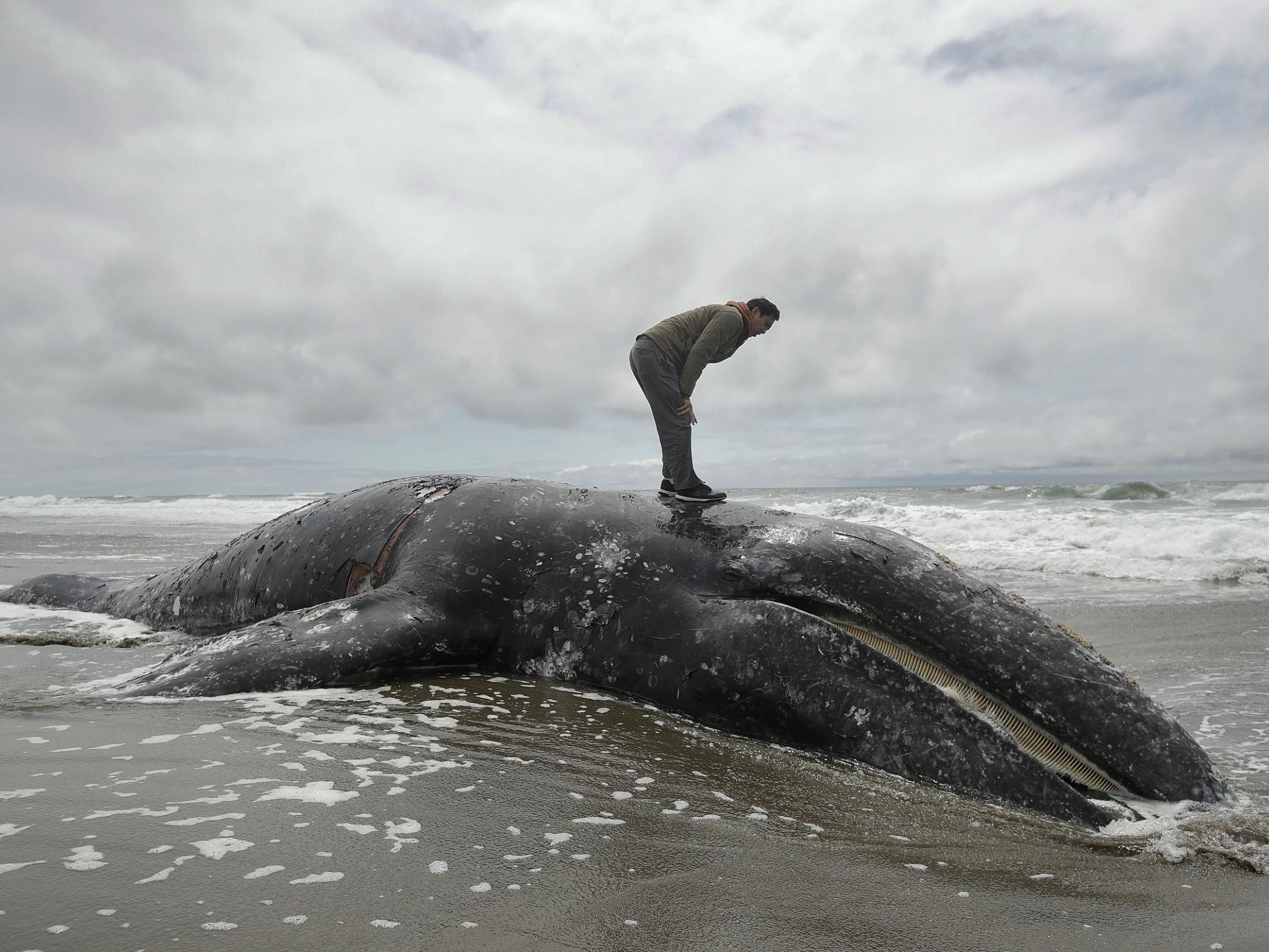Spike in Grey Whale deaths to be investigated by US scientists
Rising sea temperatures may have caused food shortages, scientists say

The deaths of dozens of grey whales washed ashore in recent months along the US West Coast are to be investigated by a team of US government biologist.
Declaring the spike in deaths an “unusual mortality event”, the National Oceanic and Atmospheric Administration (NOAA) said designation the deaths required greater scrutiny and allocation of more resources to determine the cause.
At least 70 dead grey whales have turned up on the US West Coast in 2019, many of them emaciated. The number is the highest recorded since 2000.
So far, 37 dead grey whales have turned up in California waters, three in Oregon, 25 in Washington state and five in Alaska, according to officials of NOAA’s National Marine Fisheries Service.
The total of dead whales documented probably represents a small fraction of those that have perished, scientists say.
Tragic photos show beached whales
Show all 15The most recent dead whale in Alaska was spotted last week near Chignik Bay.
Many of the stranded whales have been found with little body fat, leading experts to suspect that the dramatically warming waters of the northern seas may have depleted the food stock the whales rely on, causing the die-off.
The grey whales summer in the Bering Sea and Chukchi Sea off Alaska, consuming most of a year’s worth of nourishment to pack on the blubber they need to carry them south to wintering grounds off the coast of Mexico and back north to feeding grounds off Alaska.
Sea ice has been at or near record lows in the Bering and Chukchi, and water temperatures have been persistently much higher than normal.
Scientists say this is an apparent consequence of human-caused climate change.
The conditions the whales encountered last summer could be hurting the animals now, as they make their annual migration north, said scientists assembled by NOAA for a teleconference on Friday.
“The Arctic is changing very, very quickly, and the whales are going to have to adjust to that,” Sue Moore, a University of Washington oceanographer, told reporters.
Another theory is that the number of whales has reached the limits of the environment’s natural capacity to sustain further population growth, scientists said on the call.
The current estimated population of eastern North Pacific grey whales is about 27,000, the highest recorded by the agency since it began grey whale surveys in 1967, said biologist David Weller.
The deaths could be caused by a combination of factors, as in other die-offs, the scientists said.
However, it is known that some whales have ventured into new places in their search for food, facing higher risks of collisions with ships.
“We are seeing lots of live grey whales in unusual areas, some of them clearly emaciated, trying to feed,” John Calambokidis, a biologist and grey whale expert with the Cascadia Research Collective.
More dead whales are expected to wash ashore during the northward migration, the scientists said.
The last major West Coast grey whale die-off, in 1999 and 2000, was believed to have been related to an ocean-warming El Nino event. It also triggered an unusual mortality event declaration.
Additional reporting by Associated Press.
Subscribe to Independent Premium to bookmark this article
Want to bookmark your favourite articles and stories to read or reference later? Start your Independent Premium subscription today.

Join our commenting forum
Join thought-provoking conversations, follow other Independent readers and see their replies